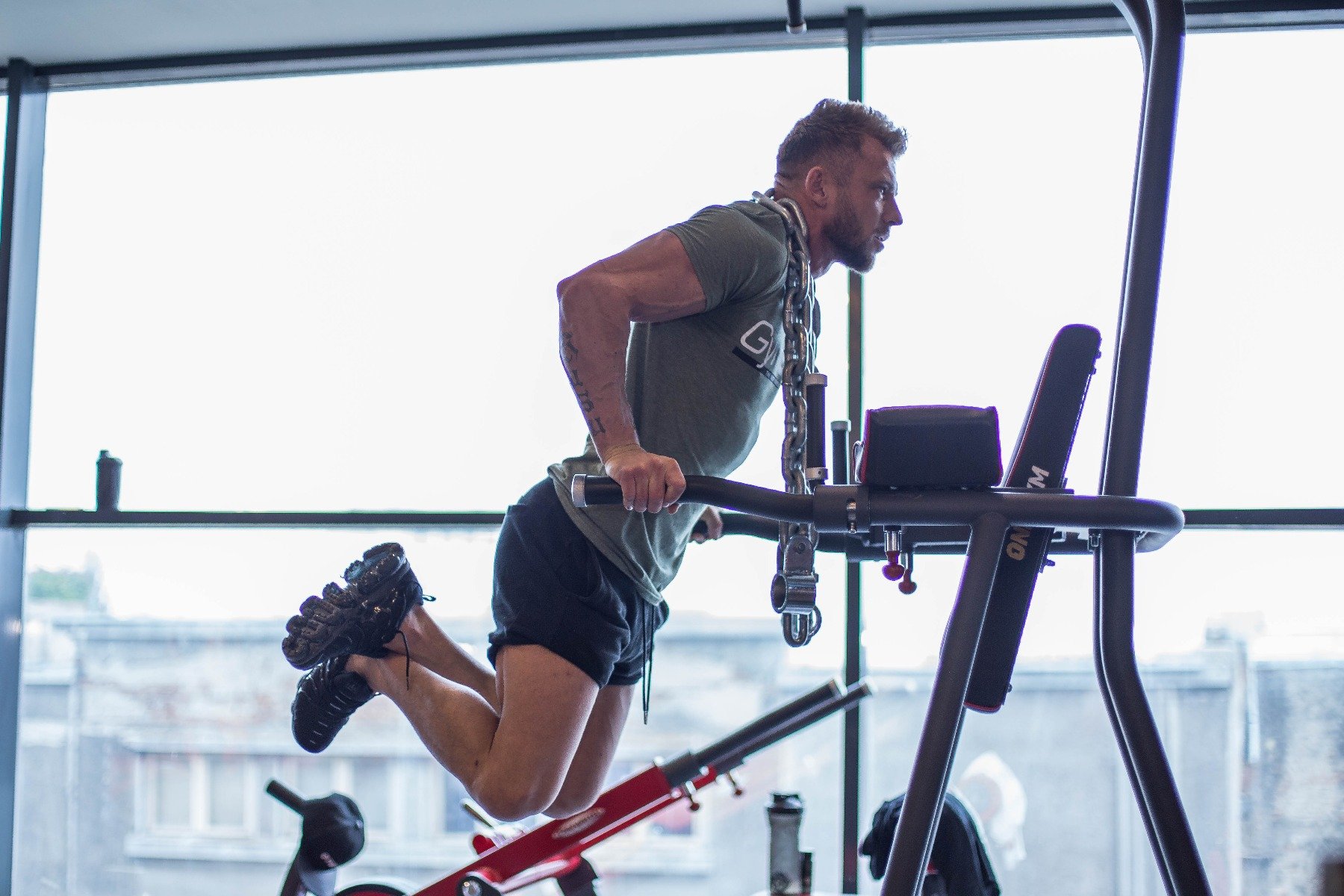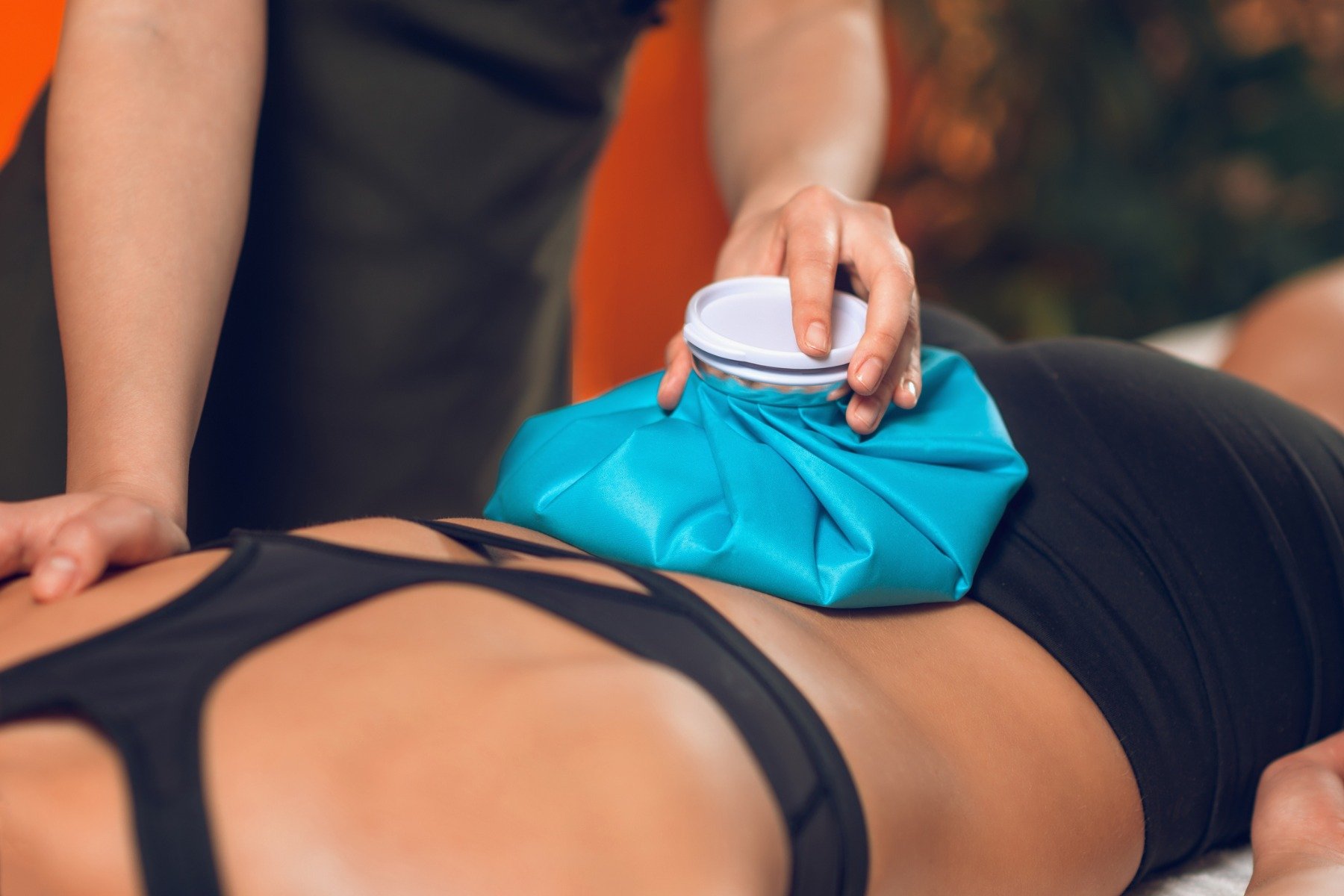Table of Contents
To become stronger and healthier, you have to work hard on yourself. Remember, however, that after a strenuous workout, your body deserves a break. Without sufficient regeneration, your gym visit is just a waste of time. Why? Rest and recovery are an essential part of any training plan. Regeneration after exercise has a great impact on your next sport performance and allows you to train much more effectively. If you are training every day to achieve your fitness goals and look great, you need to have enough time to relax. Without regular rest between training sessions, your efforts may be wasted.

Regeneration after training
You burn a lot of calories during and after training. Without regular regeneration, however, you can lose not only fat stores, but also muscle mass. The overloaded body releases a large amount of stress hormones, which can lead to a greater likelihood of injury or unwanted weight gain. However, you surely already know that muscles do not grow during exercise, they are built only after training. For this, however, sufficient regeneration, balanced diet and good sleep are needed. [1]
Why is regeneration important?
Every physical activity, especially the demanding one, stresses the body. When you exercise, you strain different muscles, which means that you damage your muscle cells. Muscle takes some time to regenerate, as it takes about 24 to 48 hours to rebuild muscle tissue. Therefore, frequent training sessions can relax your muscles, rather than helping them grow. [2]

The intense pace of exercise takes its toll. The polysaccharide glycogen, which is found in the liver and in the muscles, is excreted from the body. It is important for controlling blood sugar levels and provides the muscles with the necessary energy. For rapid recovery after long-term exercise, replenishment of glycogen is needed to initiate repair and adaptation of muscle tissue. To maximize muscle glycogen levels, you need to consume carbohydrates. [3]
However, carbohydrate intake is not the only guaranteed way to recover from hard exercise. Therefore, we offer you 8 tips on how to regenerate after training.
You might be interested in these products:
1. Think of hydration
Water plays an important role in regeneration. It contributes to the proper functioning of processes in the body that enable the recovery of stressed muscles after exercise. Remember, up to 75% of your muscles are water. [14] There are several reasons to maintain a drinking regime after a hard workout, because hydration does the following:
- Promotes muscle recovery – Exercise and a balanced diet support muscle growth through muscle protein synthesis. However, protein synthesis requires that the muscles are well hydrated. If you are dehydrated after your workout, protein synthesis will slow down and then delay your recovery. [4]
- Improves digestion – As mentioned above, your muscles need to replenish glycogen levels after exercise. Therefore, it is important to eat carbohydrate-rich foods. Digestion, however, requires the presence of water. Saliva, which helps to decompose food, consists mainly of liquids and is essential for digestion and absorption of nutrients. Therefore, good hydration will make your digestion easier and hence regeneration. [5]
- Reduces fatigue – One of the most common symptoms of dehydration is fatigue. Failure to observe the drinking regime will reduce blood volume. This means that the heart has to work harder to pump blood to all parts of the body that need vital oxygen and nutrients. Fatigue not only hinders recovery after training, but the feeling of lethargy reduces motivation and the desire to continue exercising.
2. Don’t forget about a balanced diet
Do you feel hungry immediately after exercise? You must not neglect it because you need to refuel. A diet after training is essential for your muscles to function well.

Nutrients important for muscle regeneration include the aforementioned carbohydrates as well as proteins. [6] The body breaks down proteins into amino acids that serve as the building blocks of muscle fibres. Without proteins, stressed muscles cannot regenerate, or they can, but the body would consume amino acids from other sources, which you certainly don’t want. [7]
Vitamins and minerals are also important substances. On the one hand, they help to make more effective use of the benefits of proteins, on the other hand, they release the hormones that are required for regeneration.
3. Enjoy quality sleep
During sleep, the body releases growth hormones that help the muscles grow and promote fat burning. At night, some body functions are idle, so the body has enough time to repair damaged tissues. The better you sleep, the better your muscle regeneration.

This is why sleep time also plays an important role in the regeneration process. If you are one of those people who think they need only 5 hours of sleep, know that your body is suffering. It does not have enough time to recover, putting you at a higher risk of injury. Enough sleep and relaxation are one of the best ways to accelerate muscle regeneration. [15] Therefore, focus on optimum 7 to 8 hours of sleep per day.
4. Try a massage
Massage improves blood circulation and at the same time relaxes the tight body. Muscle massaging has positive effects, which even professional athletes cannot do. Stimulating muscle mass can prevent pain, which usually occurs 2 to 6 hours after intense workout.
However, you can massage your muscles yourself with a fitness roller. Fitness roller is an effective massage aid to improve overall mobility, increase muscle size and relax stiff limbs. Fitness rollers are effective fitness accessories that you can use in the comfort of your home or at the fitness centre.
Research shows that rolling removes scar tissue and isolates it. This is important because lymph nodes are often the main cause of muscle and joint pain after exercise. Try to have a few minutes of massage in the morning and in the evening, and after some time you will feel the difference. Massage will reduce the risk of injuries and promote the recovery of your muscles. [9]
5. Soothe pain in ice and cold baths
If you work hard in a gym, prepare for a marathon, or just want to do something for your health, it will not go without pain. Your muscles tear, so there is a small amount of inflammation that annoys your body. Ice alleviates pain in the affected area by reducing the speed of nerve conduction. This will cause the pain signals between your muscles and your brain to slow down, so you hardly feel pain.
One of the easiest ways to recover after a hard workout is as follows. Apply ice compress to sore muscles for 20 minutes to help them recover faster. Also popular are cold baths or cryotherapy, used by professional athletes to regenerate and reduce muscle pain after intensive workouts and competitions. [10]

Many elite runners, professional football players and well-known bodybuilders cannot be allowed on the ice bath after training. Some athletes use, in addition to an ice bath, contrast water therapy, thus alternating between cold and warm water. [11]
6. Do not forget about stretching
Regular muscle stretching has many benefits. Stretching can help increase your flexibility, which is an important factor in fitness and improves posture. In addition, prolonged muscle stretching reduces stress and eliminates pain.
Stretching is a great way to relieve muscle tension and prevent post-workout pain. Stretching exercises or yoga are among the best activities you can do to help regenerate muscles and prevent future injuries. Stretching can be especially useful for you on non-training days. Over time, you will feel a positive effect in the form of reduced appearance of muscle fever. [12]

7. Regenerate actively
Active relaxation refers to a low intensity exercise immediately after the end of a heavy workout. The paradox is that the best way to recover from a marathon or other sporting activity is just active relaxation.
Active regeneration may include jogging or cycling at a slow pace. It differs from a typical regeneration in that it lasts longer than a few minutes. Therefore, it can be considered an extension of the training plan itself.

The primary goal of active relaxation is to keep the heart rate above the resting frequency. Therefore, at the end of the training, it is appropriate to include exercises such as:
- light weightlifting (30% less load than usual)
- yoga and its less energetic forms, such as hatha, yin or slow vinyasa
- cycling or stationary bike
- elliptical or rowing machine
- swimming
- hiking, brisk walking or jogging
8. Relieve stress
Every day we are exposed to chronic stress that comes from various sources. It can be caused by work, lack of sleep or negative influence of the surroundings. This kind of stress can significantly affect how you feel, but also how quickly you recover. Too much discomfort can drastically reduce the regeneration rate between workouts.
If you want to include intense exercise in your workout plan, you need to get rid of chronic stress. Exercises that you do under the influence of psychological discomfort can have a negative effect on your body. Muscles are more prone to injury, and if you are trying to achieve weight loss, you may experience a shock from gaining stress kilograms. [13]

Take steps to relieve stress so you can recover more quickly. Do something you really like, laugh and surround yourself with the people you love. Try to meditate, practice yoga, take time only for yourself. Your body will thank you for that.
As you already know, post-workout recovery is a key part of achieving your fitness goal. If you want to gain energy for your next workout, you should start practicing these tips and add them to your workout plan. What form of regeneration do you prefer after training? Share your tips in the comments, and if you liked the article, make sure to support it by sharing.
[1] Shannon Clark - 8 Ways To Maximize Your Post-Workout Recovery – https://www.bodybuilding.com/content/8-ways-to-maximize-your-post-workout-recovery.html
[2] Jayne Leonard - How long does it take to build muscle with exercise? – https://www.medicalnewstoday.com/articles/319151.php
[3] Laboratoire MOVE (EA6314), Faculty of Sport Sciences, University of Poitiers, Poitiers, France - An Evidence-Based Approach for Choosing Post-exercise Recovery Techniques to Reduce Markers of Muscle Damage, Soreness, Fatigue, and Inflammation: A Systematic Review With Meta-Analysis – https://www.frontiersin.org/articles/10.3389/fphys.2018.00403/full
[4] Montain SJ, Coyle EF - Influence of graded dehydration on hyperthermia and cardiovascular drift during exercise. – https://www.ncbi.nlm.nih.gov/pubmed/1447078
[5] Cheuvront SN, Carter R, Sawka MN - Fluid balance and endurance exercise performance. – https://www.ncbi.nlm.nih.gov/pubmed/12834575
[6] Pal S, Ellis V - The chronic effects of whey proteins on blood pressure, vascular function, and inflammatory markers in overweight individuals. – https://www.ncbi.nlm.nih.gov/pubmed/19893505
[7] Beck K, Thomson JS - Role of nutrition in performance enhancement and postexercise recovery – https://www.dovepress.com/role-of-nutrition-in-performance-enhancement-and-postexercise-recovery-peer-reviewed-article-OAJSM
[8] Olivier Dupuy - An Evidence-Based Approach for Choosing Post-exercise Recovery Techniques to Reduce Markers of Muscle Damage, Soreness, Fatigue, and Inflammation: A Systematic Review With Meta-Analysis – https://www.frontiersin.org/articles/10.3389/fphys.2018.00403/full
[9] Banfi G - Whole-body cryotherapy in athletes – https://www.ncbi.nlm.nih.gov/pubmed/20524715
[10] Aryane Flauzino Machado - Can Water Temperature and Immersion Time Influence the Effect of Cold Water Immersion on Muscle Soreness? A Systematic Review and Meta-Analysis – https://link.springer.com/article/10.1007%2Fs40279-015-0431-7
[11] Christian Thibaudeau - How to design a damn good program – https://www.t-nation.com/training/how-to-design-a-damn-good-program-1
[12] Khan JA - Psychosocial-Stress, Liver Regeneration and Weight Gain: a Conspicuous Pathophysiological Triad – https://www.ncbi.nlm.nih.gov/pubmed/29566366
[13] Kyle J Hackney - Skeletal muscle volume following dehydration induced by exercise in heat – https://www.ncbi.nlm.nih.gov/pmc/articles/PMC3707098/
[14] Elkhenany H - Tissue regeneration: Impact of sleep on stem cell regenerative capacity. – https://www.ncbi.nlm.nih.gov/pubmed/30393021


Add a comment